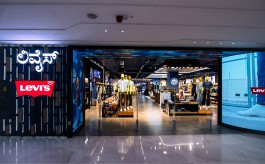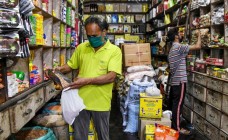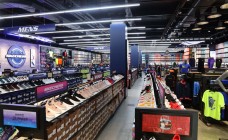The Conventionally‘ Unconventional’ yet most effective way of doing Kirana business
By Retail4Growth Team | Retail4Growth Team | February 26, 2021
Anup Kumar, CEO & Founder, Kirana King talks about the changing trends and strategies of doing effective Kirana Business
 A prudent retail business model is based upon the retailer’s inherent ability to create value for customers and the entire retail value chain. However, if focused on a business that is predominantly B2B the key aspect is to empower the retailers. This is primarily achieved by seamless technology and supply chain innovations along with a scale of economies related advantage clubbed with offering operational expertise.
A prudent retail business model is based upon the retailer’s inherent ability to create value for customers and the entire retail value chain. However, if focused on a business that is predominantly B2B the key aspect is to empower the retailers. This is primarily achieved by seamless technology and supply chain innovations along with a scale of economies related advantage clubbed with offering operational expertise.
The unorganized grocery retail segment has been witnessing tremendous changes post COVID-19 which has been a strong pivot and breakthrough for Kirana store owners. From dusty counters, heaps of consumer goods to long queues and unorganized shelves, Kirana Stores are now getting a makeover from being conventional to adopting unconventional ways to conduct business. Improved product selections, better payment ways using UPI’s, Debit Cards, Credit Cards, Apps etc., Digitization initiatives at these stores and facilities like home delivery and online ordering have begun to churn the connect between the Kirana Store Owner and the customer off late. A new dimension of customer’s expectation has been opening up gradually.
Behavioral changes amongst consumers have always played a pivotal role where the markets and the industry would base their strategies upon. With the outbreak of the Pandemic the retail industry on the whole has seen a major shift in consumer behavior where customers now prefer to shop online and maintain least possible contact or prefer contact-less shopping. According to the National Retail Federations survey about 9 out of 10 consumers have changed their shopping habits after the outbreak of COVID-19, while over 50% ordered products through online sources or mediums that they would earlier purchase from stores but now avoid with a fear of crowd at these stores. The survey also highlights that 60% customers are actually worried of going to the store with the fear of getting infected.
While Kirana stores focuses on visual merchandising to generate footfalls, one must not forget the importance of the personal connect of store owners with local customers and their preferences. It could be unaffordable for small local Kirana Stores to spend a huge sum on marketing activities, however, if associated with brands like Kirana King this can be well organized and executed. Kirana King offers support to the local Kirana Store owners with leaflet marketing, radio marketing and even pamphlets distribution in local areas where the store exists, under the centralization of marketing module of their Retail as a Service (RaaS) model.
Mom and Pop stores holds more than 90% of all India retail trade & are the backbone of our economy. There is an aspect of familiarity and personal service which is reassuring to the people who shop from these stores. The retail stores have recently shown a dramatic improvement in financial performance, growth in deposits, even after fully paying back the dealers or the inventory managers in advance.
Identifying the heterogeneity of the Indian market and the psyche of the retailers Kirana King has made various amendments to its RAAS based model to suit specific business requirements of Indian Kirana market. RAAS has helped the unorganized retail sector a great deal in getting more agile in their processes and leveraging years of experience with robust business processes. What started as a disruption in organized Retail market has gained substantial significance and acceptance as a must-do process for any thriving Retail organization. Indian Grocery Retail Market has millions of Kirana Stores. These stores operate independently and take care of the entire business process on their own. The processes include right from sourcing to negotiating with distributors, shelf management, display and merchandise, negotiating technology in recent times increasing the turnaround time for consumers or even the digital payments. The excruciating process that demands significant man hours from these one man operated stores is simply time-consuming resulting in adverse impact at critical consumer’s journey touch points, lower retention, lower average bill value and a dwindling consumer base compared to the branded chains of Modern Grocery Retailing that offer these services through ‘Economies of Scale’.








